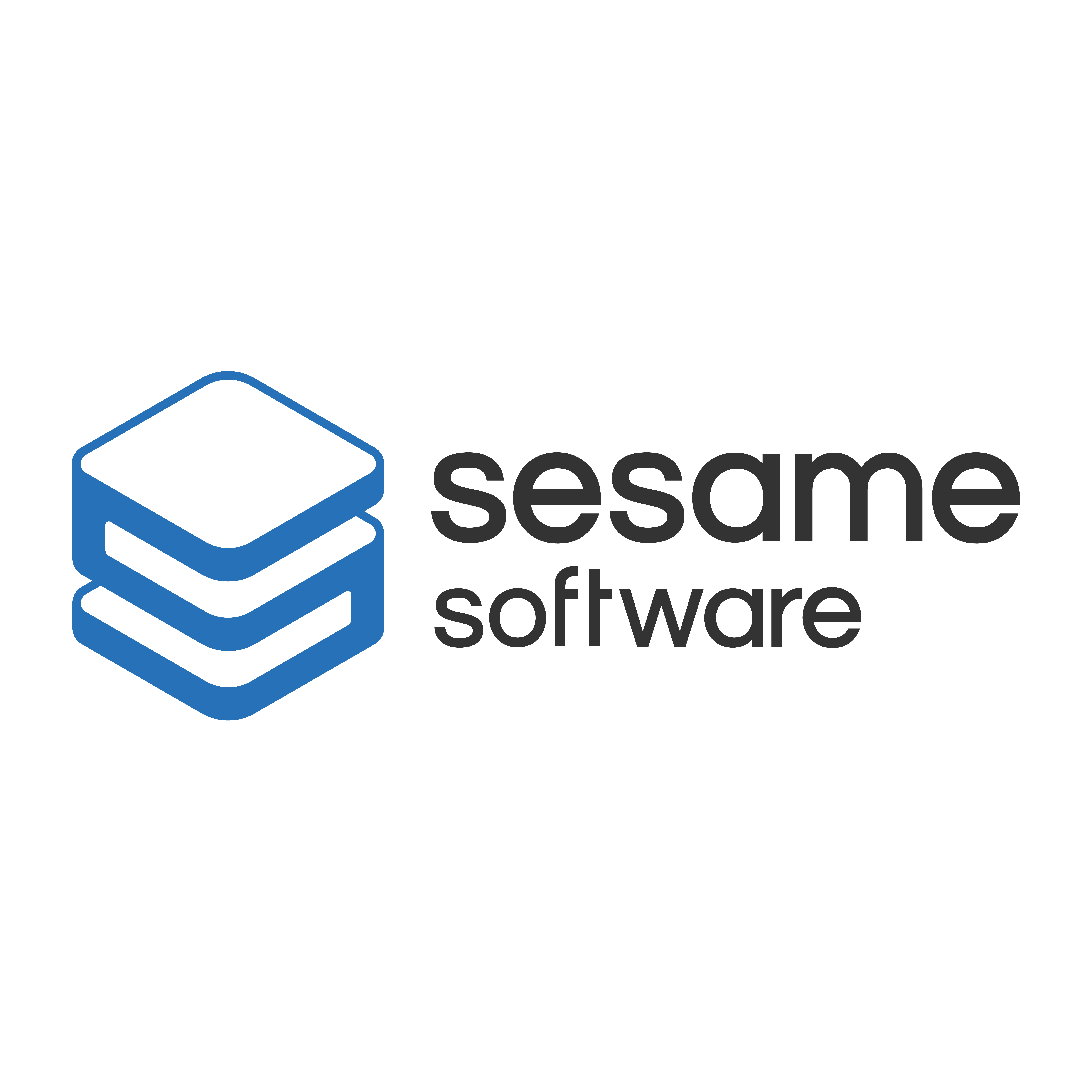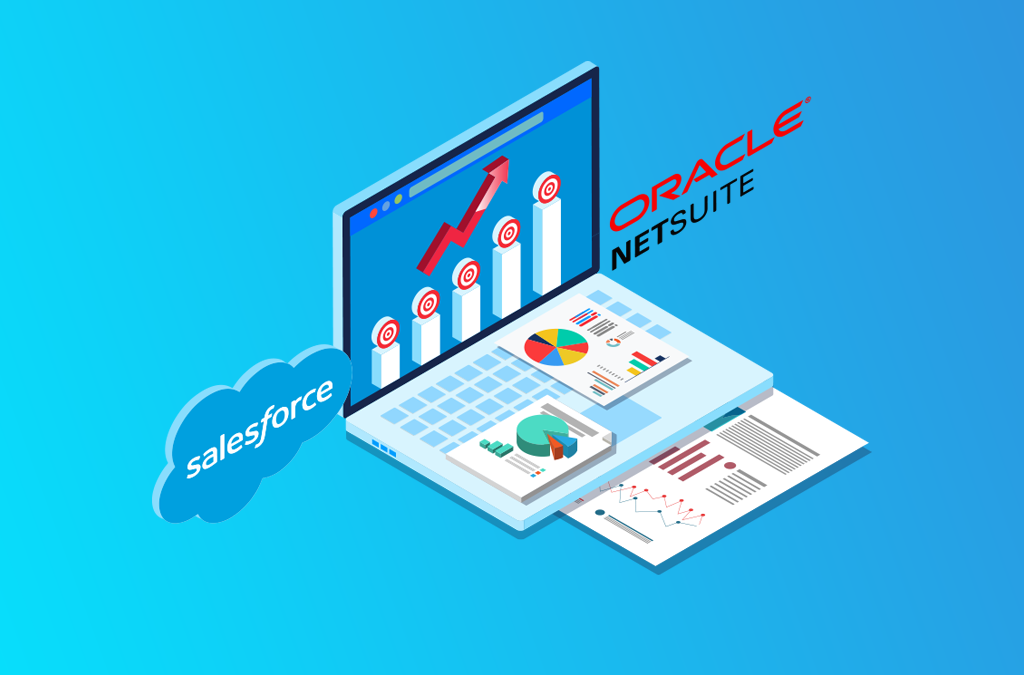Digital transformation is a driving force for many to streamline their business processes and keep up with the ever-evolving technology landscape. Specifically, for finance teams, this means automating and adopting strategies that enable them to save time and money, thus, increasing productivity.
Businesses invest in NetSuite ERP and Salesforce CRM for many reasons. Both solutions combined help companies automate many key processes such as managing finances, tracking revenue, and tracking inventory. This helps businesses operate more efficiently by keeping more accurate records and minimizing errors.
Additionally, these platforms will also help a business market itself more efficiently and establish better relationships with customers. However, integrating NetSuite with their Salesforce CRM is often overlooked. The benefits of syncing the two systems are invaluable. In this blog, we take a look into some of the benefits of integrating NetSuite and Salesforce.
What is NetSuite?
NetSuite’s cloud enterprise resource planning (ERP) system gives companies applications to run their businesses efficiently while nurturing growth. The company’s ERP system manages core functions, including finance and accounting, inventory, orders, and procurement.
What is Salesforce?
Salesforce is a cloud-based software company specializing in Customer Relationship Management (CRM). Salesforce is a popular CRM solution for support, sales, and marketing teams worldwide. Salesforce enables businesses to better connect with customers and prospects and allows them to track customer activity and gain a holistic overview of the customer journey and sales cycle.
Benefits of Salesforce and NetSuite Integration
Better Alignment and Increased Team Productivity
For businesses to thrive, alignment throughout all departments within the entire organization is crucial. Finance and sales teams need to establish effective workflow while creating processes and forecasts. One of the main benefits of the two platforms is that they will help improve cash flow efficiency and provide better compatibility and team productivity.
For example, by connecting both the ERP and CRM software, sales teams can easily access the status of invoices to make informed decisions about opportunities and accounts. With the data readily available within Salesforce, the sales team can save valuable time by accessing the data themselves in real-time, without needing access to NetSuite or asking the finance team.
Similarly, the finance team can reduce the number of instances where the sales team needs to engage with them to ask for updates on invoices and sales orders. When a sale is made, the software will immediately record it so the company can know precisely when and if they received payment. This will allow departments to manage their cash flow more efficiently. Simply put, by integrating both systems, teams are provided with a more complete platform for enhanced collaboration.
Data Accuracy and Valuable Client Information
Reliable data is crucial to making strategic pivots in business strategy and satisfying customer needs. When looking at finances and accounts, data accuracy is of significant importance; businesses should be able to trust the numbers that are being recorded within NetSuite and Salesforce. When the data in two critical systems don’t match, it is hard to if either tool is accurate.
By removing manual data entry and integrating NetSuite’s accounting software with Salesforce’s CRM, businesses can ensure that data is reliable across the board. Combining both systems allows for automation to take over and streamline processes. With more accessible client information, businesses can easily keep better track of their clients quickly and efficiently. As a result, they will have the ability to get the data they need to better serve their clients and be much less likely to commit errors.
The two software solutions combined can also provide scalable customer data. Getting data on past and current customers can allow a business to market more efficiently. They will be in a position to grow and expand as a result.
Complete Visibility with Reports and Dashboards
With Salesforce’s strong native reporting capabilities and NetSuite’s financial data, users can easily create reports and dashboards from their data that provides valuable, real-time insight.
Traditionally, many finance teams have completed their forecasting and data tracking within Excel spreadsheets, which involves exporting data from various sources. Not only does this takes a significant amount of time, but it is also highly likely that there will be human errors during that manual process. This process is automated by integrating Salesforce and NetSuite to ensure data accuracy.
How to Get Started
An integration solution should be a key consideration for any business to create a cohesive system and workflow. The benefits of integrating Salesforce with NetSuite can be revolutionary for your business, allowing your data teams to become more productive, efficient, and better aligned.
Sesame Software’s data management solution provides complete integration for NetSuite, Salesforce, and a wide variety of other data sources, synchronizing across many formats and applications.
Sesame Software can help any business complete the process of both NetSuite ERP and Salesforce CRM integration that will streamline operations in many ways. With automated high-volume data connectors, you can eliminate manual data entry, data mapping, and maintenance.
Sesame Software provides expertise to ensure that your data is seamlessly connected so that your business can more efficiently conduct its daily operations. With Sesame Software, your business will reach its full potential with the enhanced technological solutions offered by Salesforce and NetSuite.
Other third-party integration platforms can take weeks or months to configure. With Sesame Software, we bring your data together with unprecedented speed, no matter the size, volume, or source.
Ready to get started? Book a complimentary demo today!


